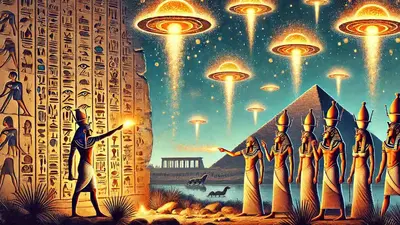
Do Aliens Exist?
For centuries, humankind has looked to the stars with a sense of wonder and curiosity. Do aliens exist? What form might they take? These questions have been a topic of debate, intrigue, and even fear, reflecting our species' deep-seated desire to understand the universe and our place within it. But what factors have contributed to our long-standing fascination with extraterrestrial life? Furthermore, how has popular culture and media shaped our perceptions of aliens? From H.G. Wells's Martian invaders to Spielberg's E.T., our collective imagination has been richly fed by speculative visions of alien life.
The scientific pursuit of extraterrestrial existence wasn't always a legitimate field of study. But over time, fields like astrobiology emerged, focusing on the possibility of life beyond our planet. Astrobiology's development can be traced back to several key events and discoveries that challenged our understanding of life's potential. But how has our understanding of life beyond Earth evolved over time? What were those key discoveries that fuelled the scientific quest for extraterrestrial life?

Currently, efforts to detect extraterrestrial life are being actively pursued, through initiatives like the Search for Extraterrestrial Intelligence (SETI) and various space missions. SETI, in particular, has the primary objective of detecting signals from intelligent alien civilizations. But what are the findings of the SETI program? Which space missions are dedicated to the search for extraterrestrial life, and what have they discovered so far?
Unidentified Flying Objects
Adding to the complexity of this debate are numerous accounts of Unidentified Flying Objects (UFOs). While skeptics dismiss them as mere misinterpretations of natural phenomena or man-made objects, some believers argue they are definitive proof of extraterrestrial visitation. What evidence do UFO sightings provide for the existence of aliens? How credible is this evidence? Furthermore, how have governments and scientific communities responded to these sightings?
In the grand scheme of things, the existence of extraterrestrial life remains a puzzle yet to be solved. The strongest arguments for and against the existence of extraterrestrial life often come from scientific, philosophical, and even theological perspectives. Based on our current scientific understanding, what are the prospects for eventually discovering aliens?
While definitive proof remains elusive, the search for extraterrestrial life continues to captivate our imagination, drive scientific research, and redefine our understanding of life's potential in the universe. The existence of aliens may remain a question for now, but the journey of discovery it spurs undoubtedly enriches our understanding of life, the universe, and ourselves.
Recommended

